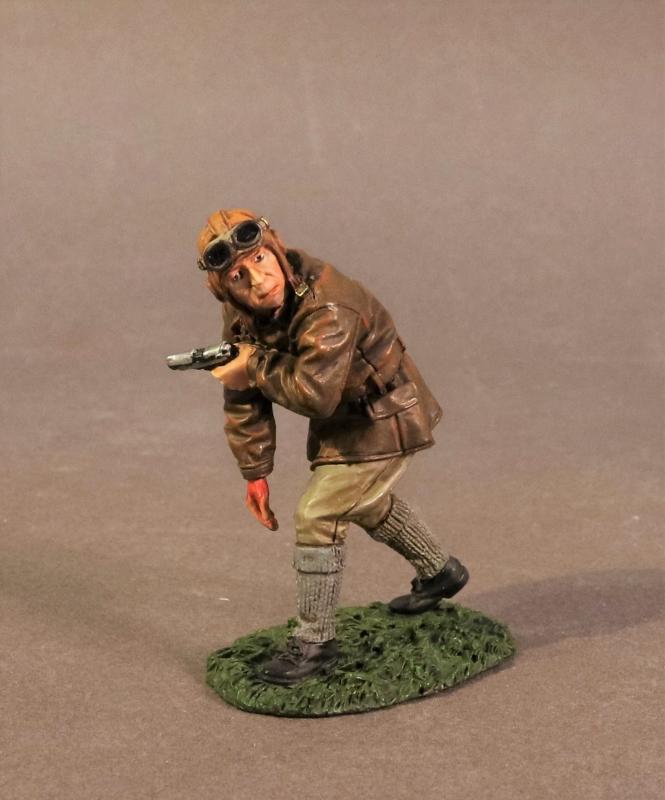Lt. Frank Luke, Jr. (USA), Knights of the Skies--single figure
$43.00
Item Number: ACE-26P
Lt. Frank Luke, Jr. (USA), Knights of the Skies
Frank Luke Jr. (May 19, 1897 – September 29, 1918) was an American fighter ace, ranking second among U.S. Army Air Service pilots after Captain Eddie Rickenbacker in number of aerial victories during World War I (Rickenbacker was credited with 26 victories, while Luke's official score was 18). Frank Luke was the first airman to receive the Medal of Honor. Luke Air Force Base, Arizona, an U.S. Air Force pilot training installation since World War II, is named in his honor.
Luke's final flight took place during the first phase of the Meuse-Argonne Offensive. On September 28, after achieving his 14th and 15th victories, he landed his SPAD XIII at the French aerodrome at Cicognes where he spent the night, claiming engine trouble. When he returned to the 1st Pursuit Group's base at Rembercourt the next day, he was confronted by Captain Alfred A. Grant, his squadron's commanding officer (C.O.). Despite being under threat of arrest by Grant for being AWOL, Luke took off without authorization and flew to a forward airbase at Verdun, where his sympathetic group commander, Major Hartney, canceled the arrest order and gave Luke tacit approval to continue his balloon hunting. That evening Luke flew to the front to attack three balloons in the vicinity of Dun-sur-Meuse, six miles behind the German lines. He first dropped a message to a nearby U.S. balloon company, alerting them to observe his imminent attacks. Luke shot down the enemy balloons, but was then severely wounded by a single machine gun bullet fired from a hilltop above him, a mile east of the last balloon site he had attacked. Luke landed in a field just west of the small village of Murvaux—after strafing a group of German soldiers on the ground—near the Ruisseau de Bradon, a stream leading to the Meuse River. Although weakened by his wound, he made his way toward the stream, intending to reach the cover of its adjacent underbrush, but finally collapsed some 200 meters from his airplane. Approached by German infantry, Luke drew his Colt Model 1911 pistol and fired a few rounds at his attackers before dying. Reports that a day later his body was found with an empty gun and a bullet hole in his chest, with seven dead Germans in front of him were proven erroneous. According to author Skinner, the fatal bullet, fired from the hilltop machine gun position, had entered near Luke's right shoulder, passed through his body, and exited from his left side
Eddie Rickenbacker said of Luke: "He was the most daring aviator and greatest fighter pilot of the entire war. His life is one of the brightest glories of our Air Service. He went on a rampage and shot down fourteen enemy aircraft, including ten balloons, in eight days. No other ace, even the dreaded Richthofen, had ever come close to that.
